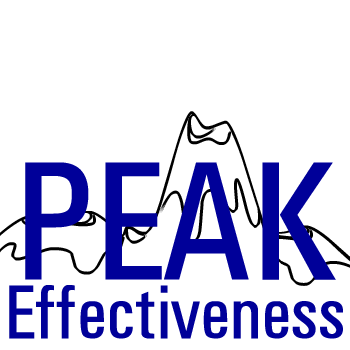






|
|
|
|
|
|
Get Engaged – At
Work and In Life!
Other Uses of Endorsements
Endorsements are an immediate way to make your selling process as much as five
times more effective than it would be if you didn't use them. By having a
respected person--or organization--endorse your product or service, you can
add tremendous force and credibility to your sales message.
1. Write down the names of individuals, or groups, that command respect
and influence among people in your core market. The individuals don't
have to be celebrities, but they must be immediately recognizable by your
target audience -- and
they must be perceived as having integrity.
If 80% of your target audience plays golf, it might
be worthwhile to find a respected golf pro--even a local golf pro--to give the
endorsement.
The best endorsers may be customers that already own your product, and feel comfortable with it. They may be more than happy to give an endorsement.
2. Then, approach the prospective endorsers directly, or through their intermediaries, and ask them to endorse your product or service. Be ready to prove the good things you already know about your product or service. If they don't know you well now, and respect you, they will want some hard facts before agreeing to link their names and reputation to yours in an endorsement.
They may accept your proposal out of sheer altruism, but don't be bashful about pointing out how by endorsing you they will also gain some valuable exposure and new business themselves. If they want to be paid, offer them a fee, a share of gross or net sales--or so much per order placed or lead generated. The fact that they accept compensation won't compromise the integrity or credibility of what they say. (They may even ask that their payment go directly to a charity.)
Point out some of the positive things they could do with the money they'd make by endorsing you--like hiring new people in their own organizations and embarking on some business building of their own!
Make the endorsers feel comfortable. Show
them how they can try the relationship out almost risk-free. Offer to try one or
two or three little applications first before you actually expand or "roll
out" the endorsement to a wider audience. They can see the impact for
themselves, firsthand. They can see how happy people will be. They can watch the
way you perform. They can call everyone who bought from you and assure
themselves of your performance.
Prove through action that their personal creditability is not being compromised.
Tell the endorser that only then, when they are comfortable, will you expand. By
taking the risk away from the endorser, it's a powerful, powerful way to get
endorsement candidates to say, "Yes, I'll give it a try."
3. Once agreement is reached, ask the endorser to make the most
compelling, most powerful and the most specific claim they can possibly make for
you and your organization. You don't want a vague statement like "The
Widget is a Great Product." You want "The Widget cut the time to
respond to emails in half, giving me more free time to enjoy with my family. I'm
sure it can do the same for you."
Always highlight the benefits--the improved end result--that men and women and
children will derive by buying from you, or by coming to you for advice or
treatment. And tie the endorsement directly to the major
desires/wants/needs/interests of your target audience.
You don't want one of those slice-of-life testimonials--like a satisfied car
buyer who appears for just an instant on TV. An endorsement is much more than a
testimonial; it's a loftier presence, a more powerful way of influencing people.
Because of the association with the endorser, you gain for yourself an elevated
stature and greater credibility in the eyes of your existing and prospective
customers.
Endorsement can be delivered to your target audience by:
1. Have the endorser sign a letter that comes on their letterhead, but one
that you write. Let them have full editorial approval and control over it. You
basically write it out, get them to sign it, then you fund it and send it out.
They could send out a letter offering the product or services to their
customer or clients. Then they could follow that letter with a phone call. If
they can't or don't want to do this because they don't have the people, time,
money or inclination, then you can do it yourself, as a warm
follow up.
2. Have them put out a promotional announcement or sales letter about your product or service in packages or statements they send out. Examples: Offers for electronic goods and watches tucked in with your Mastercard bill. The FedEx logo and add-on shipping offer with catalog pages.
3. Have them call people. Or do it together.
4. Run ads with their pictures in publications.
5. Have them lend their names as author or co-author of
reports that you also write with them. In other words, you get a great
endorser, and they lend their name along with you to a special report you send
out to the industry. Or do a cassette tape that you produced together in a
room.
6. Have endorsers come to special events you hold at your offices, at
hotels or at conventions around the country.
7. Get permission to send representatives from your company to set up a table, booth or desk in their office -- or to make sales rounds with their salespeople. Example: Allstate insurance booths at Sears stores.
8. Have them available for conference calls.
9. Use them in televised teleconferences worldwide.
10. Share exhibition space with the Host or endorsing
company at
trade shows, or in ads.
Endorsements give you great leverage. On your own, doing it all yourself, all
you can possibly bring to bear is your own capital. Your own human capital.
The sales efforts, the emotion, the passion.
But why limit yourself? If you can tap into other people or
organizations who've been around and in the industry or in positions of prominence for years or decades, and have spent
millions--and have become almost venerable fixtures of credibility and
distinction in
the industry--why would you not want to tap into
that, too, when you can often do it for almost nothing?
Use endorsements whenever and as frequently as
possible.
Again, there is the flipside of using your credibility within your circle of influence to your mutual advantage by exposing your customers to another company's products or services. This can be done in many ways. Just reverse the roles suggested above. Or better yet, think of new innovative ways. We don't all have to do the same things. Life is short. Let's have fun while we are doing business.